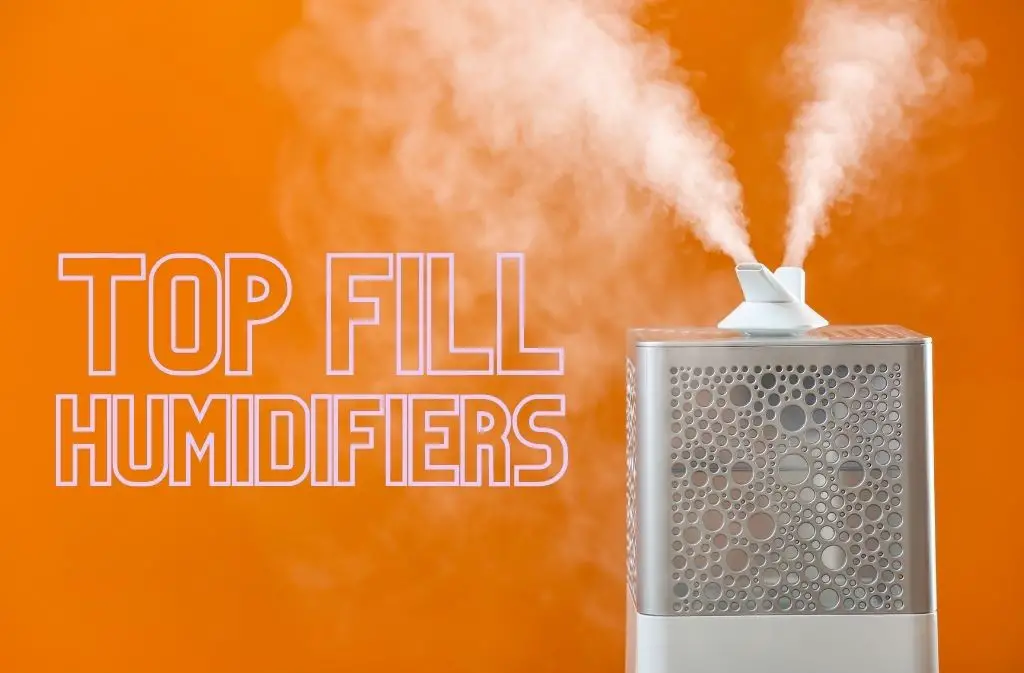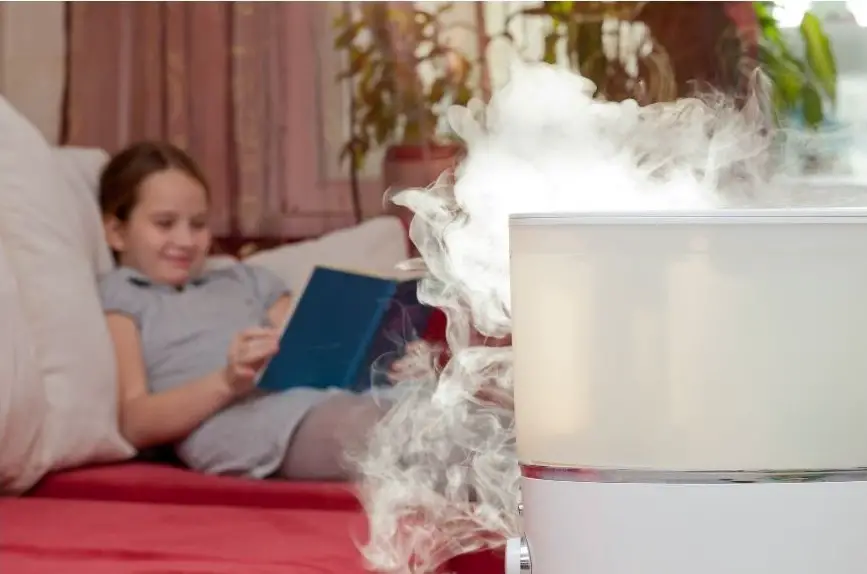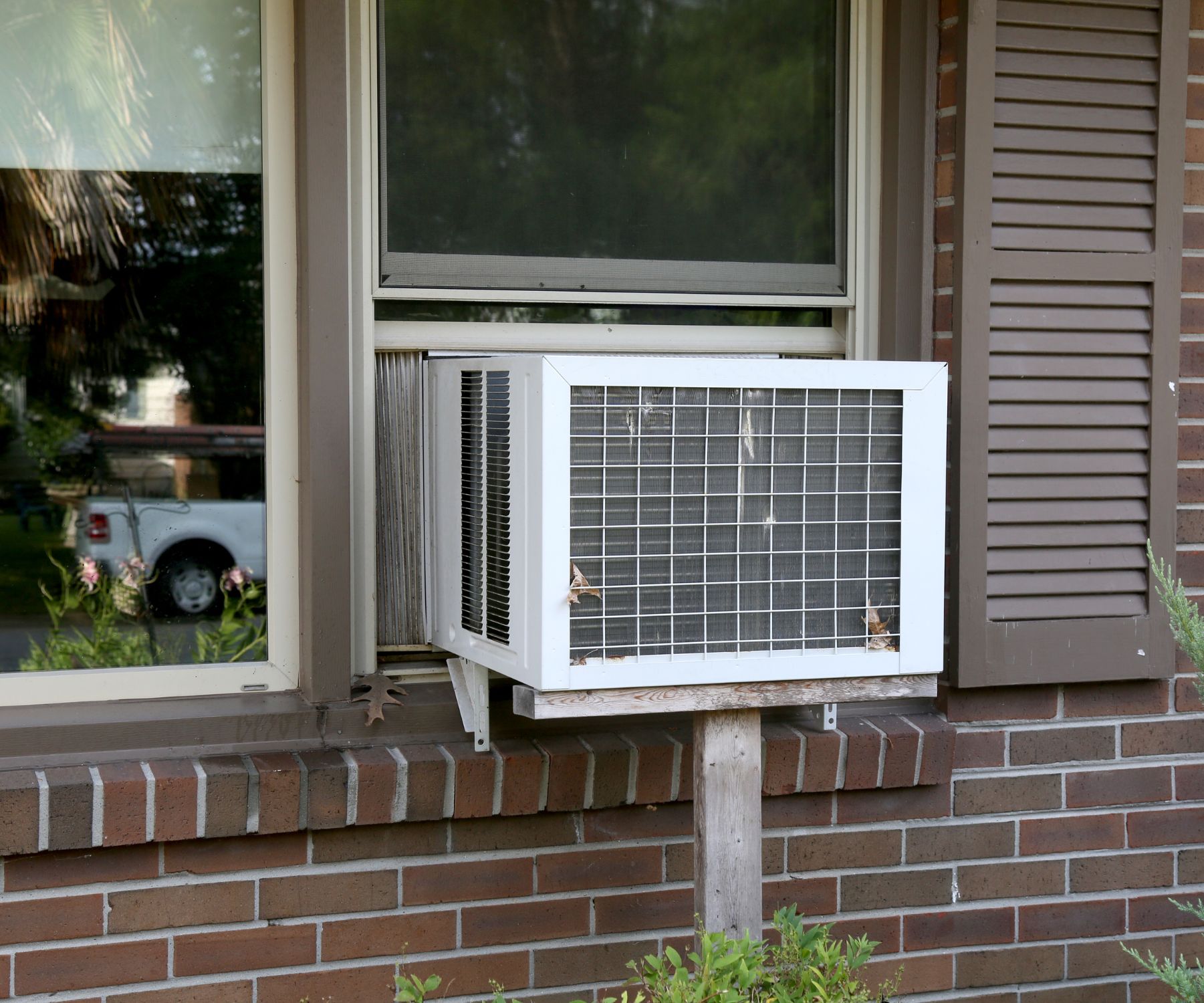Table of Contents
Have You Heard of Putting Hydrogen Peroxide in a Humidifier?
The idea might sound harmless — maybe even comforting. Hydrogen peroxide has been in our medicine cabinets for as long as most of us can remember. I can still picture my mom reaching for the brown bottle anytime I scraped my knee, the fizzing bubbles dancing on the wound like a little science experiment. It felt like part of growing up — as normal as band-aids and hugs.
That’s probably why it caught me off guard when I first heard there was controversy around it. It never occurred to me that something so ordinary, so tied to childhood memories and first-aid kits, could become the center of a heated debate.
And yet here we are. People are talking about putting hydrogen peroxide in humidifiers — not just to clean them, but to purify the air, or even to inhale the mist for health benefits. That’s where things get complicated.
So let’s take a closer look at the controversy. What are the claims, what do the experts say, and what’s the real risk in adding this familiar liquid to your humidifier?
see our complete humidifier guide
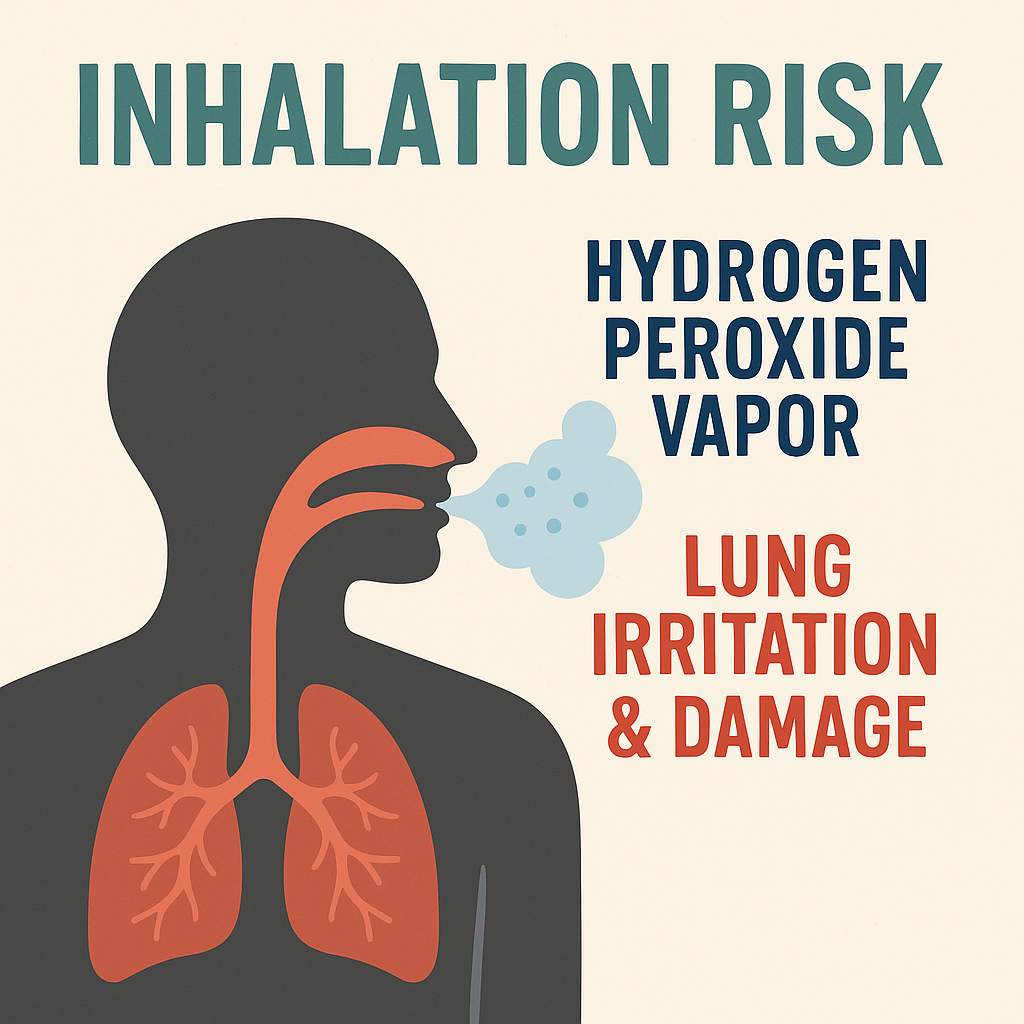 Hydrogen Peroxide in Humidifiers: Why It’s So Controversial
Hydrogen Peroxide in Humidifiers: Why It’s So Controversial
Hydrogen peroxide has been a household staple for generations — from treating scrapes to cleaning surfaces. But lately, it’s found its way into a controversial discussion: should it be added to your humidifier?
This debate isn’t just about cleaning. It touches on health, air quality, and even the fine line between science and alternative medicine. Let’s unpack the arguments — and the risks — behind putting hydrogen peroxide in a humidifier.
Why Some People Use Hydrogen Peroxide in a Humidifier
1. Inhaling Hydrogen Peroxide for Respiratory Relief
Some people believe that inhaling the mist from hydrogen peroxide can relieve respiratory symptoms like congestion, cough, or even viral infections. It’s easy to see the appeal: hydrogen peroxide is known for killing germs on surfaces, so why not in the lungs?
The reality: Health professionals strongly caution against inhaling hydrogen peroxide. Even at low concentrations, the mist can irritate or harm sensitive lung tissue. There’s no reliable evidence proving it helps, and the risk of lung damage is real.
2. Disinfecting the Air
Another claim is that hydrogen peroxide mist cleans the air by neutralizing viruses and bacteria. After all, some hospitals use hydrogen peroxide vapor systems to disinfect rooms — so why not replicate that at home?
The problem: Hospital-grade disinfection systems use highly controlled vapor concentrations and specialized equipment — not a home humidifier. Regular humidifiers can’t achieve the proper output, contact time, or safety controls for air disinfection using hydrogen peroxide.
Yes, hydrogen peroxide vapor *can* disinfect surfaces — this study shows it worked against viruses. But that doesn’t mean the same results are possible in your living room with a tabletop humidifier.
3. Keeping the Humidifier Clean
Some people add a splash of hydrogen peroxide to prevent mold or bacterial buildup inside the tank. This might seem like a smart shortcut, but it’s not without consequences.
Hydrogen peroxide can corrode the humidifier’s internal parts over time, especially if it’s a plastic unit. That damage can shorten the device’s lifespan — and potentially release harmful particles into the air.
Can You Use Hydrogen Peroxide to Clean a Humidifier?
You can — but with caution. If you’re disassembling the humidifier and rinsing thoroughly afterward, hydrogen peroxide can help remove microbial buildup. However, white vinegar or diluted bleach are usually safer and more effective choices for cleaning without damage.
The Other Side of the Story: Alternative Health Perspectives
Despite expert warnings, many alternative health advocates believe diluted hydrogen peroxide vapor has healing properties. They say it can clear nasal passages, kill airborne pathogens, and even help reduce viral loads during illness.
Supporters often reference anecdotal success — people who say this is the only thing that helped them recover from illness. There’s also research suggesting low-concentration hydrogen peroxide is safe on mucous membranes, like in this PubMed article used in ENT (ear, nose, and throat) medicine.
Still, this doesn’t mean it’s safe to use in a humidifier. These procedures are usually done under medical supervision and in precise concentrations — not poured into a consumer appliance and inhaled for hours.
 What About Gargling with Hydrogen Peroxide?
What About Gargling with Hydrogen Peroxide?
This is another popular alternative practice. Many use a diluted 1.5% solution to gargle or rinse nasal passages during cold and flu season. And while it’s unrelated to humidifiers, it’s part of the same overall movement toward hydrogen peroxide as a DIY remedy.
Just be aware: Even gargling hydrogen peroxide has risks if not done properly. Don’t exceed recommended concentrations, and always avoid swallowing it.
 So… Should You Put Hydrogen Peroxide in Your Humidifier?
So… Should You Put Hydrogen Peroxide in Your Humidifier?
Experts say no. Whether your goal is to disinfect air, relieve respiratory symptoms, or clean your humidifier, the risks of using hydrogen peroxide in this way usually outweigh the rewards.
Hydrogen peroxide can damage your lungs when inhaled, corrode your humidifier, and possibly create unexpected chemical reactions when mixed with minerals or additives in tap water.
But not everyone agrees. Proponents of natural and alternative medicine argue that low-dilution use is safe and beneficial. They point to personal stories and niche studies to support their case.
BreatheBetterAir.org is an informational website — we’re not doctors, and we don’t encourage or discourage medical practices. But we do encourage safety first. If you’re considering trying this, talk to a medical professional and make sure you understand all the risks.
Safety Warning
- Never use undiluted hydrogen peroxide in a humidifier.
- 3% hydrogen peroxide should be diluted by at least 50% before use (though it’s still not recommended).
- Food-grade hydrogen peroxide (35%) is highly corrosive and must be diluted 10:1 or more — and handled with gloves and protective clothing.
Bottom line: The controversy exists because there are passionate opinions on both sides. But until more safety data is available, it’s best to approach this method with extreme caution — or skip it altogether.
Final Thoughts: Just Because It Feels Familiar, Doesn’t Mean It’s Safe
It’s easy to trust something we’ve known all our lives. That little brown bottle of hydrogen peroxide feels almost nostalgic — like part of a simpler time when first-aid meant a sting, a hug, and maybe a lollipop. But the comfort of familiarity can be misleading, especially when we start using something in ways it was never really meant for.
Putting hydrogen peroxide in a humidifier may sound like a harmless DIY trick — but it carries real risks. Inhaling it can harm your lungs, it can damage your device, and the supposed benefits often come from anecdotal stories rather than solid science.
That’s not to say the people who swear by it are wrong — but it does mean that if you’re thinking about trying it, you should do your homework, talk to a medical professional, and weigh the risks carefully.
There are safer, proven ways to clean your air, your humidifier, and your lungs. And while hydrogen peroxide still deserves a spot in your medicine cabinet, maybe it’s best to keep it there — and not in your vapor stream.
Sometimes, the old remedies really are the best. Other times, they’re best left in the past.


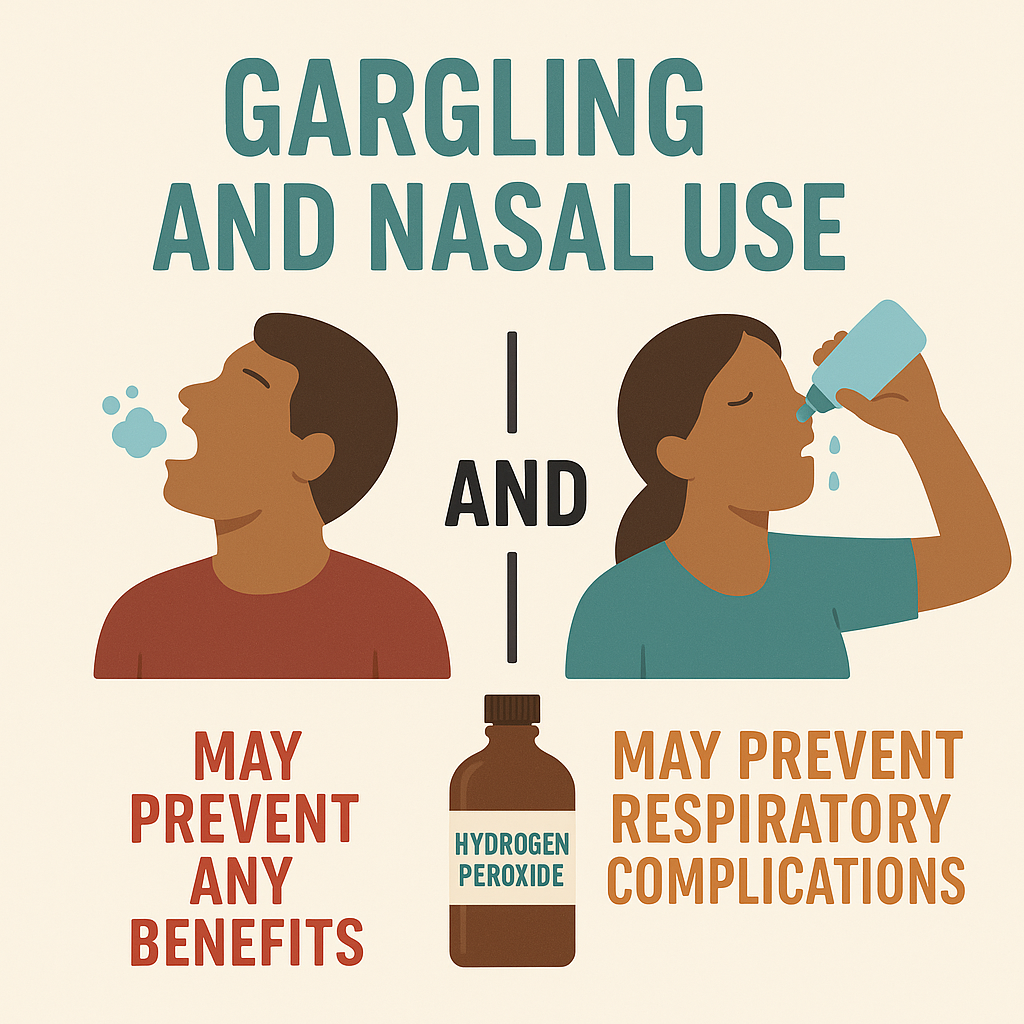 What About Gargling with Hydrogen Peroxide?
What About Gargling with Hydrogen Peroxide?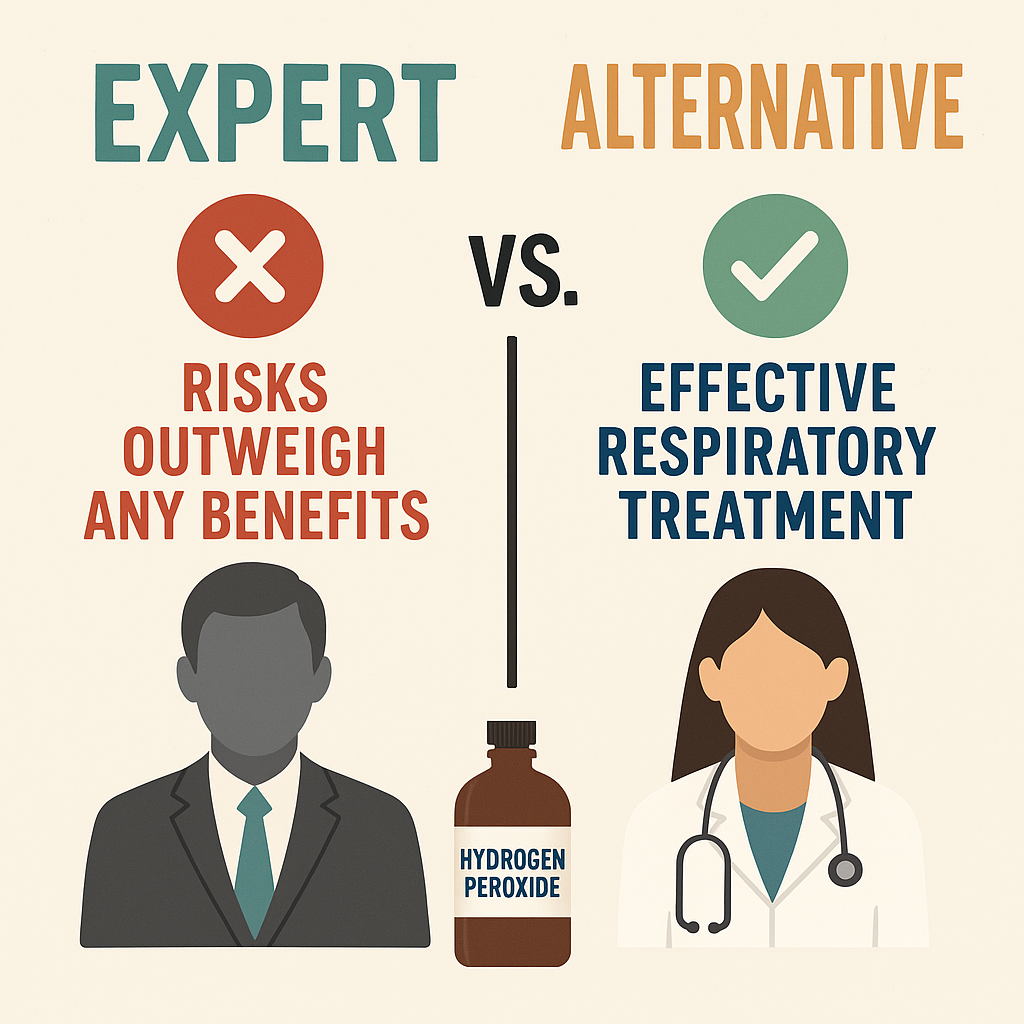 So… Should You Put Hydrogen Peroxide in Your Humidifier?
So… Should You Put Hydrogen Peroxide in Your Humidifier?
